一个类重载了运算符”()”,则该类的对象就成为函数对象
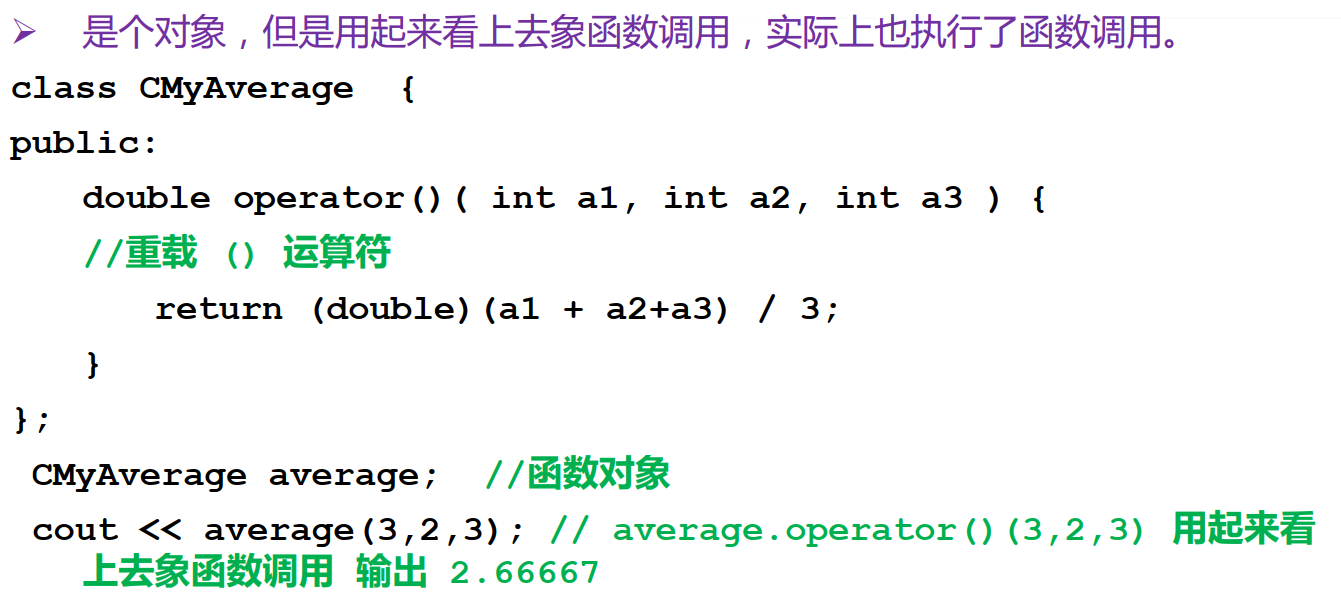
Dev C++中的 Accumulate
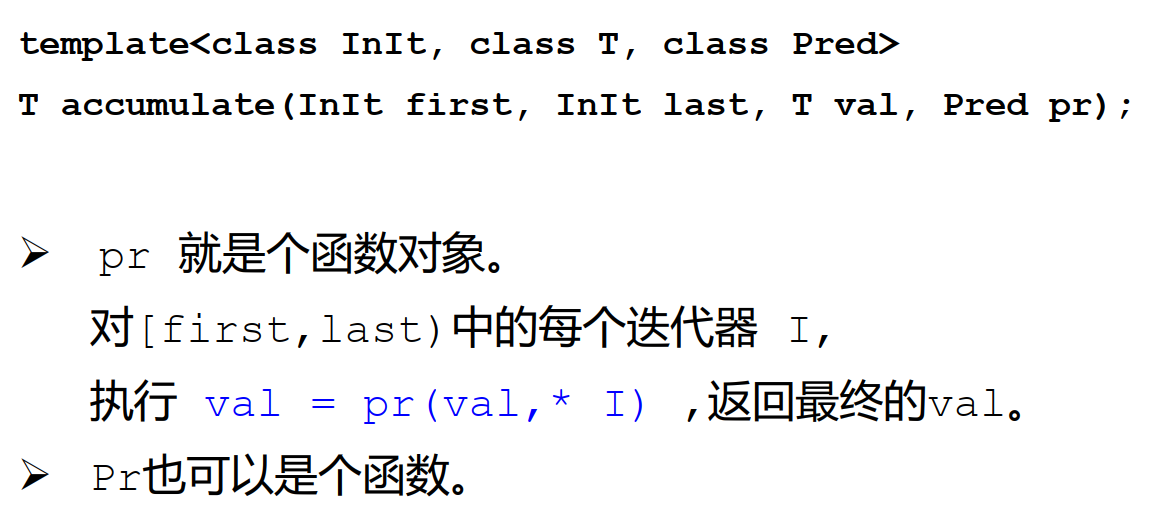
源码1
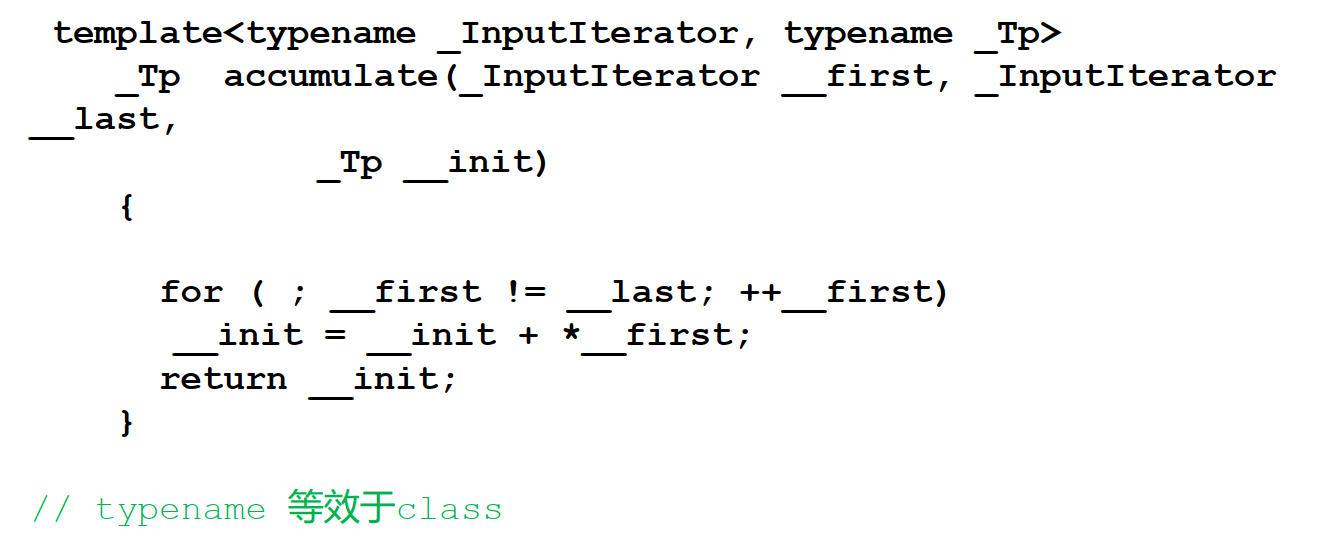
源码2

函数指针和函数对象分别作为参数实例
#include <iostream>#include <vector>#include <algorithm>#include <numeric>#include <functional>using namespace std;int sumSquares(int total, int value) { return total + value * value;}template <class T>void PrintInterval(T first, T last) { for(; first != last; ++first) cout << *first << " "; cout << endl;}template SumPowers {private: int power;public: SumPowers(int p):power(p) {} const T operator() (const T & total, const T & value) { T v = value; for(int i = 0; i < power - 1; ++i) v = v * value; return total + v; }};void main() { const int SIZE = 10; int a1[] = { 1,2,3,4,5,6,7,8,9,10 }; vector<int> v(a1, a1+SIZE); cout << "1) "; PrintInterval(v.begin(), v.end()); int result = accumulate(v.begin(), v.end(), 0, SumSquares); cout << "2) 平方和: " << result << endl; result = accumulate(v.begin(), v.end(), 0, SumPowers<int>(3)); cout << "3) 立方和: " << result << endl; result = accumulate(v.begin(), v.end(), 0, SumPowers<int>(4)); cout << "4) 4次方和: " << result;}
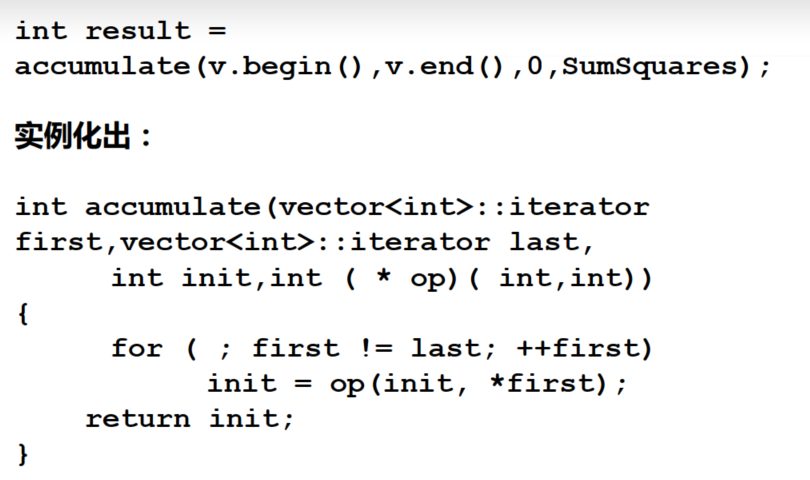
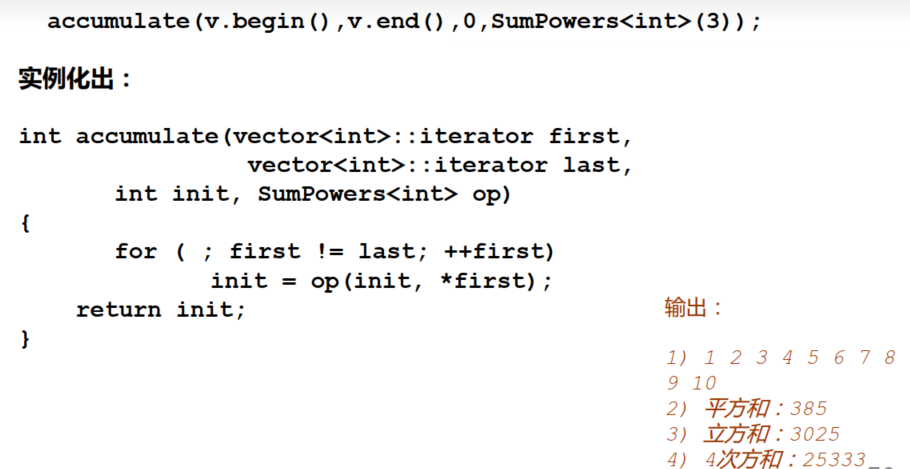
- 函数对象的好处在于,像上例中,容易修改想要累加的幂次这个参数;如果是函数指针想要实现这个功能,就必须使用全局变量或者写很多个这样的二次方三次方…的函数
STL中的函数对象类模板
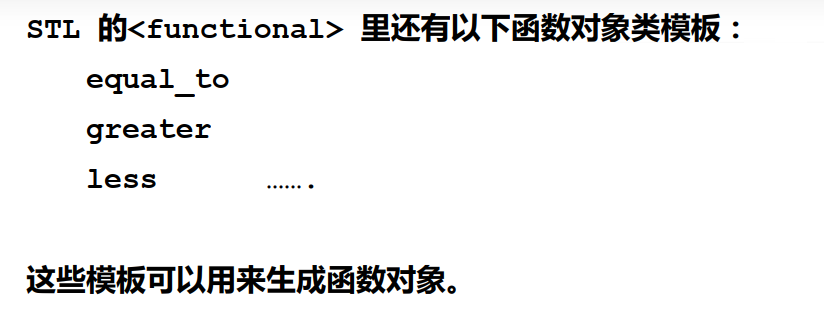
greater函数对象类
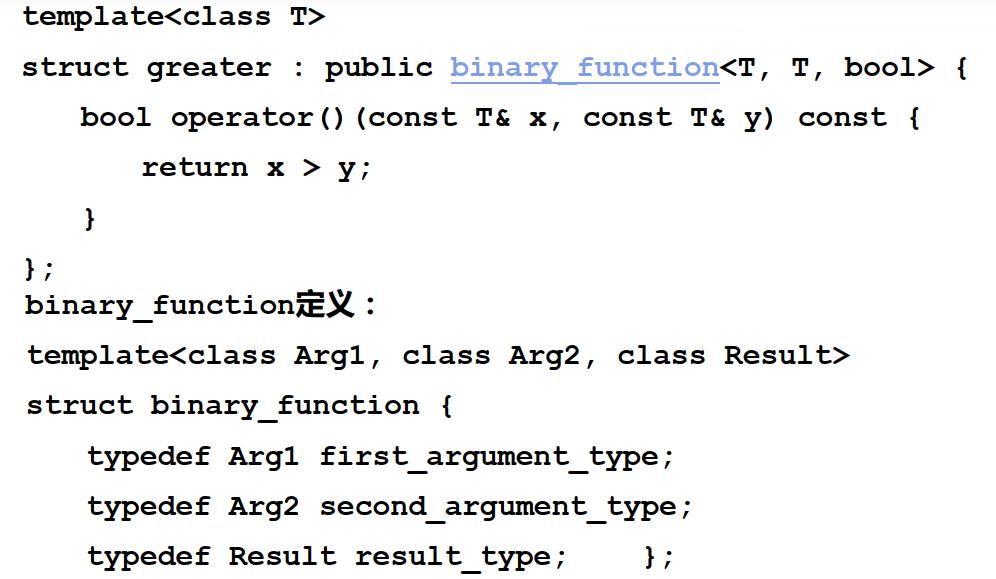
greater应用

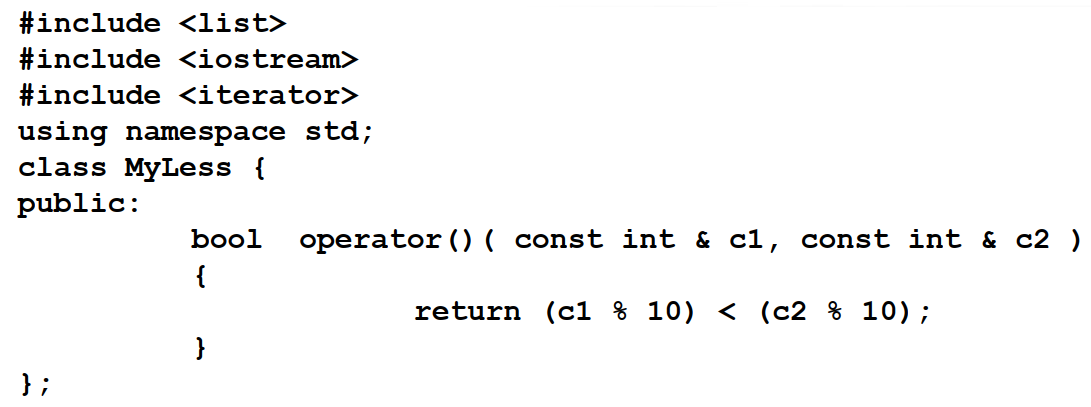
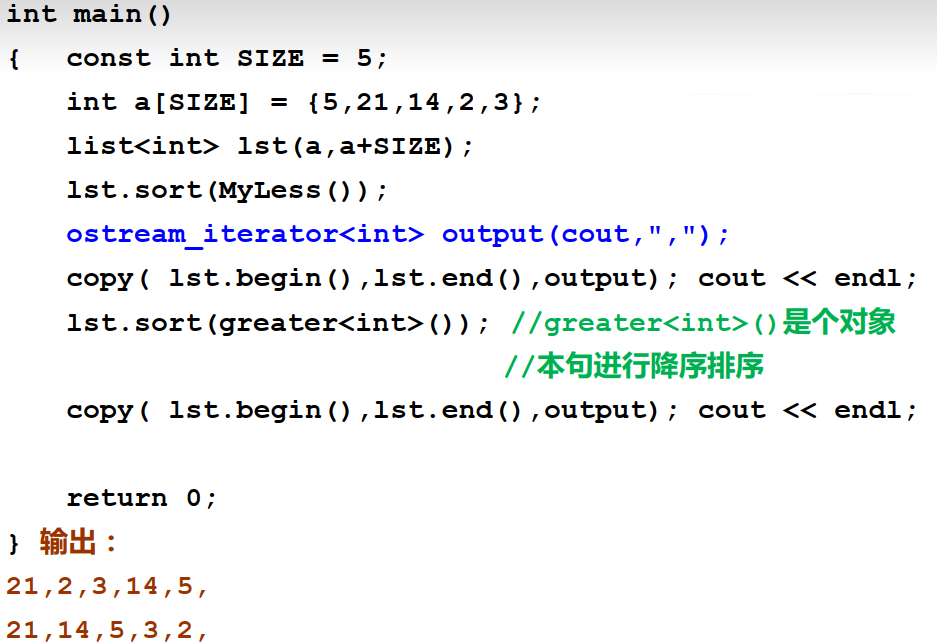
引入函数对象后,STL中“大”“小”关系

实例:MyMax编写
编写MyMax函数,满足如下程序:
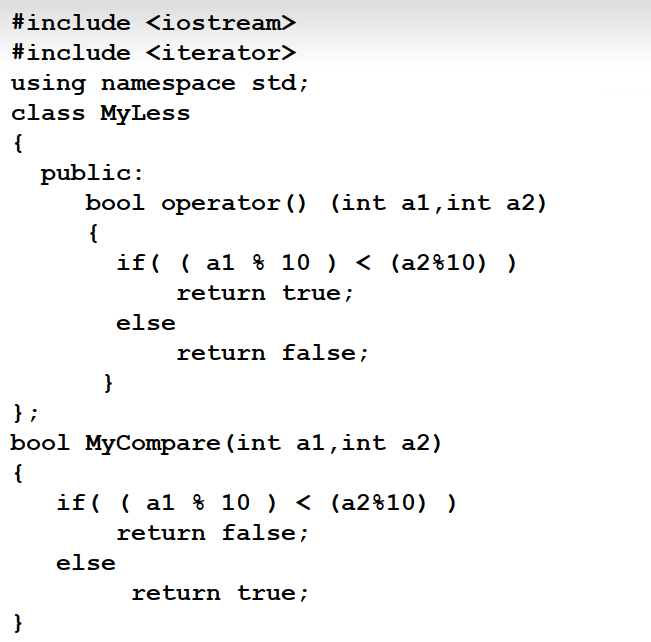
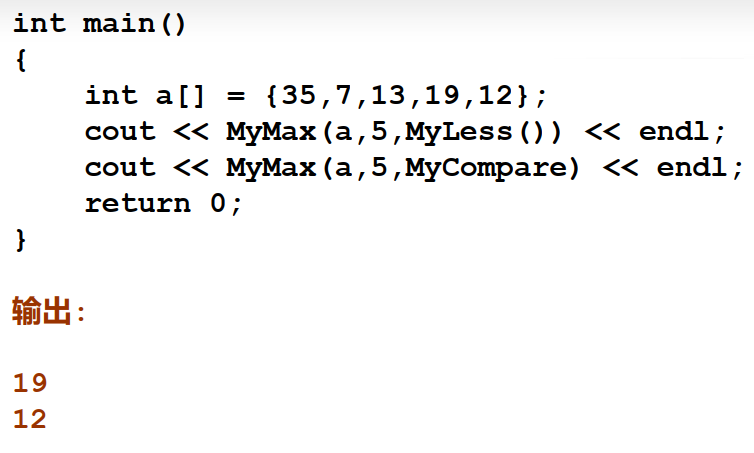
template <class T, class Pred>T MyMax(T * p, int n, Pred myless) { T tmp_max = p[0]; for(int i = 1; i < n; ++i) { if(myless(tmp_max, p[i]) tmp_max = p[i]; } return p[i];}















